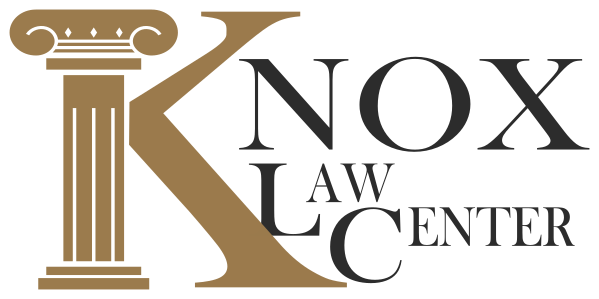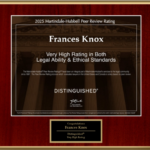[column parallax_bg=”disabled” parallax_bg_inertia=”-0.2″ extended=”false” extended_padding=”true” background_color=”” background_image=”” background_repeat=”” background_position=”” background_size=”auto” background_attachment=”” hide_bg_lowres=”false” background_video=”” vertical_padding_top=”0″ vertical_padding_bottom=”50″ more_link=”” more_text=”” left_border=”transparent” class=”” id=”” title=”” title_type=”single” animation=”none” width=”1/1″ last=”true”]
[column_1 width=”1/1″ last=”true” title=”” title_type=”single” animation=”none” implicit=”true”]
Your Power Of Attorney – Will It Do What You Expected?
by Frances Knox
A general Power of Attorney is used for many purposes. It can be used to avoid having a guardian appointed when your loved one becomes unable to handle his or her affairs, and can be executed before a Notary Public and a witness. There are two styles of this general durable power of attorney – a short and a long form. The short form is used more frequently and simply incorporates by reference from the General Statutes the items that can be handled with a power of attorney. It is recognized by most institutions.
Many times the person holding the “power” does far more than the signor intended. Three recent North Carolina cases show how the court is holding to the purposes of the original intent and statutes.
In Forbis v. Neal, (2006), a defendant transferred property from a deceased aunt. The dissent in this case said: “Fiduciary Relationship and Presumption of Fraud. A power of attorney stands in a fiduciary relationship with his or her principal and has an obligation to act in the best interests of the principal. … This fiduciary relationship gives rise to a presumption of fraud. When a party, complaining of a particular transaction, such as a gift, sale, or contract, has shown to the Court the existence of a fiduciary or a confidential relation between himself and the defendant, the defendant occupied the position of trust or confidence therein, the law raises a … presumption, arising as a matter of law, that the transaction brought to the notice of the Court was effected through fraud…”
Conlon v. Self, 162 N.C. App. 180 (2004), held that when a husband transferred his wife’s interest in their jointly owned property to himself that it was not a legal transfer. It was a violation of his rights under his power of attorney and was an illegal gift. Even though the power of attorney signed by the wife gave the husband the authority to transfer property, it was not intended to transfer martial property to himself. The court held: “an attorney-in-fact acting pursuant to a broad general power of attorney lacks the authority to make a gift of the principal’s real property unless that power is expressly conferred. Accordingly, the power-of-attorney set forth in N.C.G.S. 32A-1 and the power granted attorneys-in-fact by N.C.G.S. 32A-2(1), standing alone, do not authorize an attorney-in-fact to make gifts of the principal’s real property.” One cannot give to themselves property over which they control as a Power of Attorney agent.
In Brown v. King, 166 N.C. App. 267 (2004), the Court said that the Power of Attorney agent could not deliver a deed of trust on the property over which she had Power to gain a business advantage for herself. The court awarded punitive damages against the holder of the Power of Attorney.
These cases cite the dangers of a Power of Attorney, but such an instrument is also very beneficial to handle the management of elderly parents’ finances and for someone who is ill that allows their business to be handled while incapacitated. Most recently, military and National Guard individuals need these instruments so that their affairs can be handled while they are away.
A Power of Attorney is an excellent way to handle affairs. The General Statutes of North Carolina are explicit about what can and cannot be done. Our courts are clear that abuses will not be tolerated.
Power of Attorneys can be useful if a spouse cannot attend a real estate closing and can be crafted for a one-time transaction.
For more information on a Power of Attorney, Living Wills or a Healthcare Power of Attorney, please contact us or an attorney of your choosing.
Frances Knox is an attorney with Knox Law Center. She can be reached at 704-315-2363 or 866-704-9059 (Toll-free). The firm’s website is www.knoxlawcenter.com. and her email address is [email protected].
[/column_1]
[/column]
[column parallax_bg=”fixed” parallax_bg_inertia=”-0.2″ extended=”true” extended_padding=”true” background_color=”” background_image=”http://knoxlawcenter.com/wp-content/uploads/scales-of-justice-extra-white.jpg” background_repeat=”” background_position=”” background_size=”auto” background_attachment=”” hide_bg_lowres=”false” background_video=”” vertical_padding_top=”30″ vertical_padding_bottom=”70″ more_link=”” more_text=”” left_border=”transparent” class=”” id=”REQUEST-CONSULTATION” title=”” title_type=”single” animation=”none” width=”1/1″ last=”true”]
[text_divider type=”single”]
How Can We Serve You?
[/text_divider]
[column_1 width=”1/1″ last=”true” title=”” title_type=”single” animation=”none” implicit=”true”]
[push h=”-20″]
Fields with * are required.
[push h=”20″]
[/column_1]
[column_1 width=”1/1″ last=”true” title=”” title_type=”single” animation=”none” implicit=”true”]
[/column_1]
[/column]






